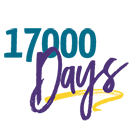
Some people spring into the new year, filled with energy and resolutions, ready to take on the world.
I am not one of those people. I admire them and wish them well. Ok, I’ll admit it: I envy them.
Instead of leaping into the new year with energy and pizzazz, I tend to wallow into it, still in a sugar and too-much-sitting hangover from the holidays. This has always worried me: am I sick? am I depressed? What if I never have energy or enthusiasm again? Should I give in to my urge to sleep all the time, or would activity break me out of this state?
This year, it bothered me even more because I’m working for myself now, so my life is supposed to be perfect, right? I always assumed that if I stopped wasting my life, I would embrace the new year. Instead, this January 1 (through 10) felt a lot like the others, just with no paycheck.
What can you do to start feeling good again?
For me, a few things seem to help.
-
Eat vegetables and make sure you’re getting enough iron. When I feel really drained, eating beef with spinach and something red (tomatoes, red bell peppers) often snaps me out of it.
-
Sleep. If you find yourself sleeping many extra hours a day, or spending all day longing to be in bed, your body probably needs rest.
-
Treat yourself with kindness and compassion. Beating yourself up or scaring yourself into doing things is usually counterproductive in the long term. One key to motivation is really caring about what you’re doing and wanting the outcome. We all lose our grip on that sometimes, even when we’re doing something that’s really awesome and important to us. It’s better to get back in touch with why you’re doing what you’re doing (or drop it if you no longer care), rather than try to force yourself to do it. Also, remember that you can’t do everything. Pick the things you care about most and focus on them. Accept that some less-important things will have to slide.
-
Move. Ideally, walk or run outside in a natural setting. That gives you exercise, combats seasonal affective disorder, and gives you a mental break. If you can’t stand the thought of doing this, trick yourself into going for just ten minutes–even that can help a lot. Aside from getting your blood flowing, you’ll be proud of yourself for getting off your butt and taking action.
-
Do something easy that makes an immediate, tangible difference in your world. For me, this often ends up being housework or yard work. My slumps often involve feeling helpless. One thing that seems to be universally true of people is that we like to control things, or at least feel like we do.2 By picking something I know I can definitely do, and then admiring and enjoying the outcome, I feel like I’m on control again. I give myself concrete evidence that I am not helpless. Then I can use that strength to go on and do other things that are more intimidating. Yay for shiny sink faucets!
-
Dust out your mind, too. Another thing that often makes me want to hide in my cocoon is unresolved issues lurking around in the dark corners of my mind. Some people handle this with art, exercise, meditation, or music. For me, writing is the answer. As I write, I get clear on what’s bothering me and what to do about it. This year, when I finally sat down and wrote my way out of my mess, I discovered 12 different things I had been undecided on! Once I addressed each one, thought it through, and figured out what I really thought and what to do about it, I felt so much lighter. That’s when the blargh lifted.
I hope this helps. If you can suggest other things that help you overcome the post-holiday blargh, please share them in the comments! Meanwhile, a belated happy new year to you all!
1 Credit for this term goes to my sister. I think it captures the feeling perfectly.
2 Stumbling on Happiness by Daniel Gilbert. Vintage Books, New York, 2005, pp. 21-24.
